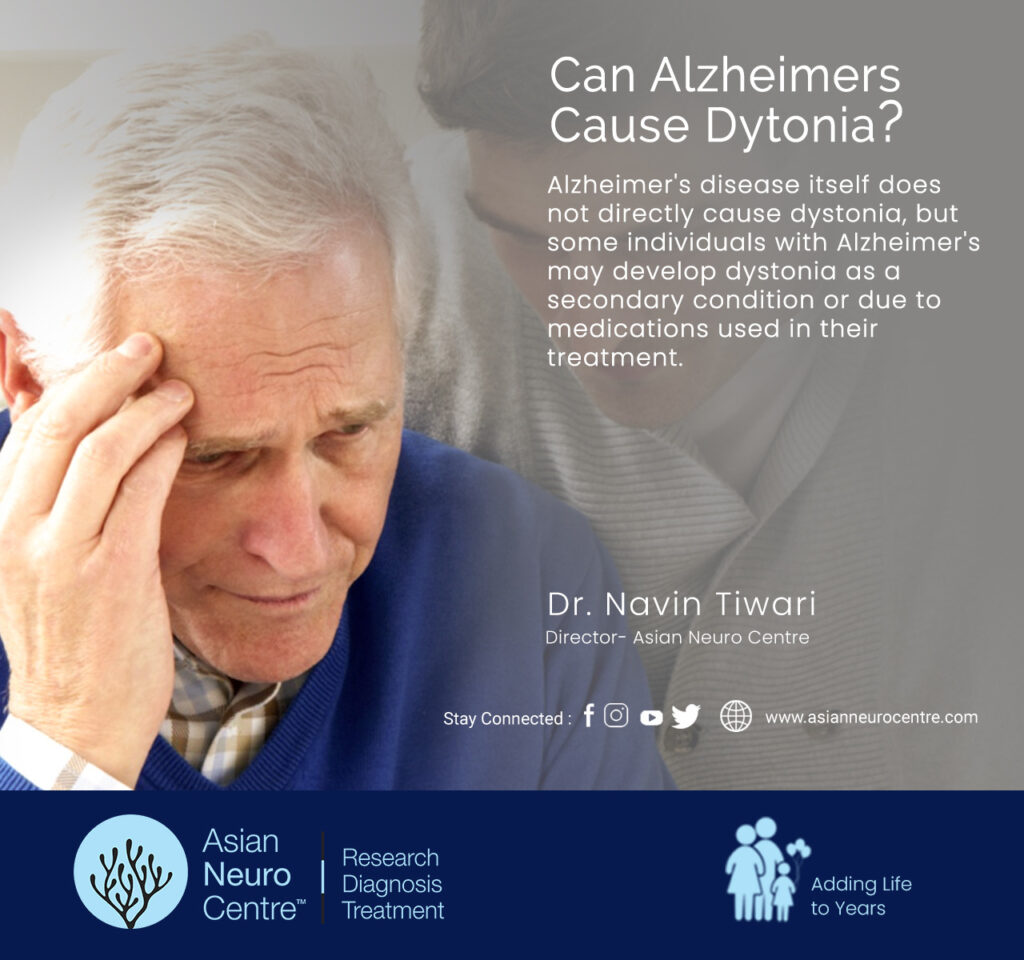- Have any questions?
- 911 12345 29
- info@asianneurocentre.com
Can Alzheimers Cause Dystonia?
What Diet for Dystonia?
January 3, 2024What is Huntington’s Disease?, Symptoms, Causes, Treatment & More
January 12, 2024What is Alzheimer’s?
Alzheimer’s disease affects the brain, mainly causing memory problems. Alzheimer’s is a brain illness where abnormal proteins harm nerve cells. It starts with memory trouble but can affect other brain parts as it progresses.
People may struggle with familiar tasks, get confused about time or place, and have difficulty finding the right words. Changes in mood and personality can occur, like increased anxiety or withdrawal.
Routine activities may become challenging. In later stages, individuals may have trouble recognizing loved ones. Simple tasks like dressing or eating become difficult. These symptoms worsen over time, impacting daily life.
What is Dystonia?
Dystonia is a movement disorder that causes muscles to contract involuntarily, leading to repetitive or twisting movements. It can affect one muscle or a group, causing discomfort and difficulty with regular activities.
Dystonia may vary from mild to severe and can impact different body parts. Sometimes, the symptoms can be painful.
Common symptoms include sustained muscle contractions causing abnormal postures or repetitive motions.

Can Alzheimer’s Cause Dystonia?
Alzheimer’s might impact parts of the brain controlling movement. Even though Alzheimer’s is known for memory issues, it could also be connected to conditions like dystonia. Alzheimer’s, a brain disease affecting memory, may have a link to dystonia, a movement disorder.
Research hints that Alzheimer’s could impact parts of the brain connected to dystonia. Understanding this link can help manage conditions like dystonia in those with Alzheimer’s.
If someone shows signs of memory loss or unusual movements, seeking medical advice is crucial for proper diagnosis and care.
Seeking medical attention for a proper diagnosis, and exploring treatments that might include medications, therapy, or, in severe cases, surgery to manage and relieve the symptoms.
Dr. Navin Tiwari
Consulting Neurologist
